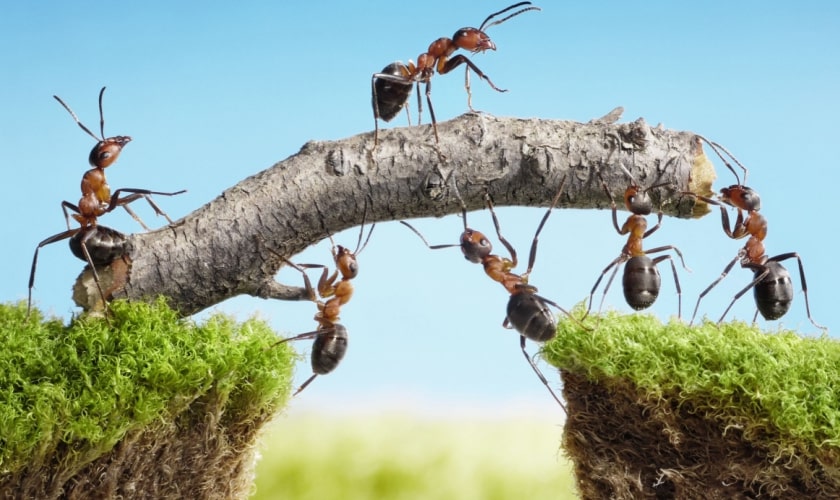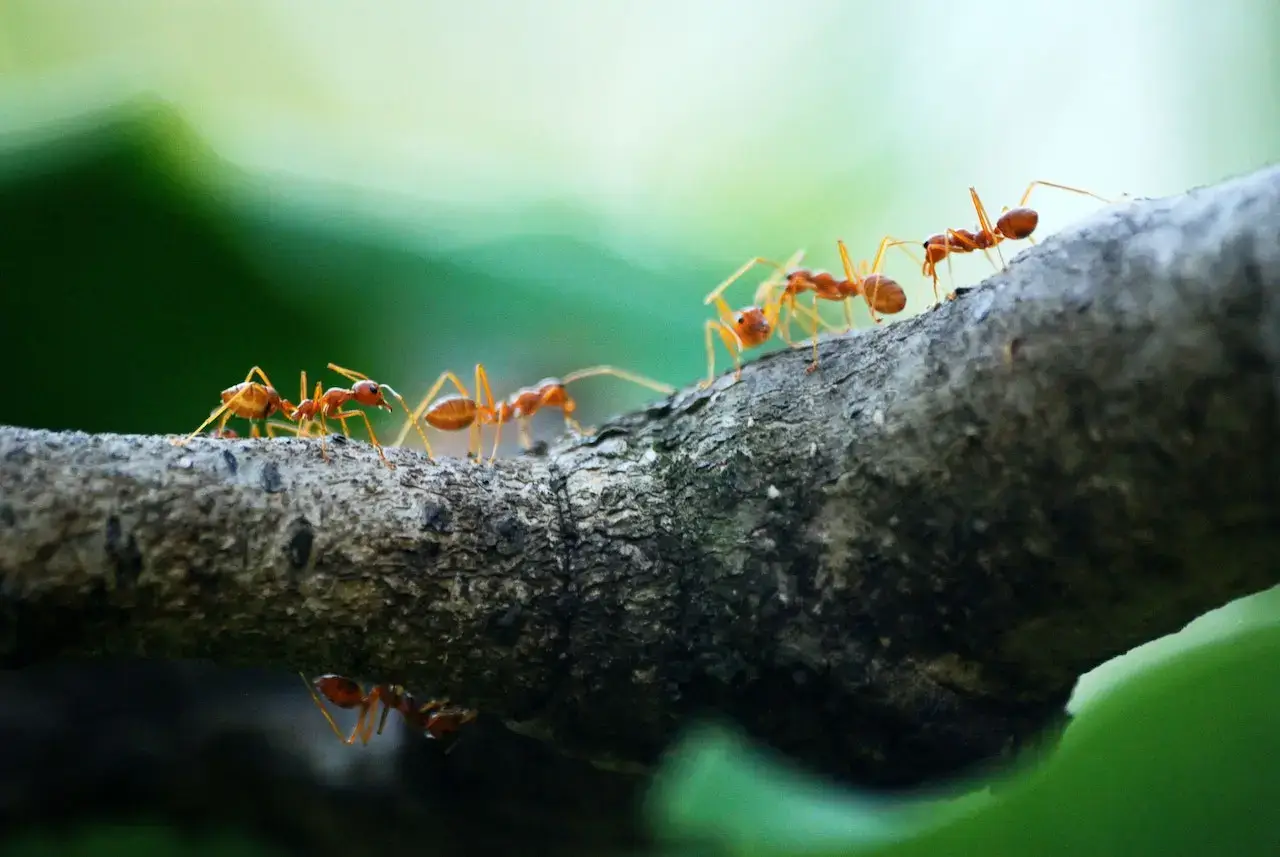Comprehensive Termite Control: Safeguard Your Property with Expert Services
Comprehensive Termite Control: Safeguard Your Property with Expert Services
Blog Article
Ecological Effect of Bug Control: Balancing Performance With Sustainability
The ecological effect of parasite control is a vital concern that needs a delicate balance in between achieving performance in making certain and managing parasites sustainability of our ecological communities. As we aim to secure our plants, homes, and health from the hazards presented by pests, the approaches we use can accidentally harm the setting. From using damaging chemicals that leak into our dirt and water to the unintentional effects on non-target types, the effects of standard pest control techniques are far-reaching. There are emerging approaches that provide hope for a more lasting method to pest monitoring. These services not just goal to deal with the prompt parasite problems however likewise take into consideration the long-lasting health and wellness of our earth.
Dangerous Chemicals in Parasite Control
The utilization of hazardous chemicals in pest control postures considerable ecological and health and wellness risks that require cautious consideration and reduction techniques. Insecticides, herbicides, and pesticides are commonly used to get rid of insects, however their widespread application can lead to unexpected repercussions. These chemicals can infect soil, water sources, and the air, impacting not only the targeted bugs but additionally helpful insects, wild animals, and people.

To resolve these dangers, incorporated bug monitoring (IPM) methods are being promoted as a much more sustainable alternative. IPM includes a combination of approaches such as biological control, environment adjustment, and the targeted use chemicals as a last option (ant control thomaville nc). By taking on a holistic strategy to pest control, we can lessen the environmental and health effects associated with unsafe chemicals while successfully handling pest populaces
Influence On Non-Target Types
Considering the unintended effects of insect control approaches, the effect on non-target types is an essential element that requires thorough evaluation. While insect control measures aim to target certain pests, other microorganisms in the ecosystem may be inadvertently affected. Non-target species, consisting of beneficial pests, birds, creatures, and even plants, can experience direct or indirect harm from pesticide applications or organic control approaches.
Pesticides made to combat a specific insect bug might harm pollinators like or all-natural killers such as ladybugs. Biological control representatives, if not species-specific, can position dangers to unplanned targets, interfering with the ecological balance.
To minimize the effect on non-target varieties, integrated insect administration (IPM) approaches that stress a holistic technique to pest control are advised. These approaches focus on making use of ecologically friendly practices, reducing harm to valuable microorganisms while properly taking care of pest populaces. Performing detailed threat evaluations and monitoring the end results of parasite control initiatives are essential action in guarding non-target varieties and promoting overall ecosystem wellness.
Soil and Water Contamination
Unintentional environmental effects of bug control techniques extend past influencing non-target types, with significant effects for soil and water contamination. Pesticides, herbicides, and chemical fertilizers used in pest control can leach into the dirt and pollute groundwater, posturing a threat to both marine and earthbound environments. Dirt contamination can interrupt the equilibrium of microorganisms crucial for vitamins and mineral biking and plant development, resulting in lowered dirt fertility and efficiency. These chemicals can persist in the environment for prolonged durations, building up in the dirt and possibly getting in the food chain.
Water contamination is one more vital issue associated with pest control practices. To mitigate soil and water contamination from bug control activities, integrated parasite administration methods that prioritize sustainability and reduce chemical inputs are vital.
Air Contamination From Pesticide Use
Direct exposure to air-borne pesticides during farming applications positions a considerable concern for air contamination control measures. Furthermore, chemical drift, where pesticides are brought by the wind to unintended areas, can lead to the contamination of nearby ecological communities and water bodies.

Techniques for Sustainable Parasite Control
In the realm of farming techniques, executing sustainable insect control strategies is extremely important for keeping environmental equilibrium and securing plant yields. Sustainable insect control highlights using ecologically pleasant methods to handle parasite populaces effectively while lessening injury to non-target microorganisms and ecological communities. Integrated Pest Management (IPM) is a widely embraced technique that integrates organic, cultural, physical, and chemical control techniques to accomplish long-lasting insect monitoring options.
One trick method in lasting insect control is promoting biodiversity within agroecosystems. By enhancing all-natural enemies of pests, such as predators and parasitoids, farmers can minimize the requirement for synthetic pesticides. Plant turning and diversity are additionally efficient methods to interrupt pest life cycles and produce less desirable problems for bugs to grow. Furthermore, using pest-resistant plant ranges and employing techniques like trap chopping can help in reducing insect stress without depending greatly on chemical treatments. Eventually, by integrating these lasting pest control approaches, farmers can accomplish a balance between pest monitoring efficiency and environmental stewardship.
Conclusion
Finally, the environmental influence of pest control techniques have to be very carefully considered to balance efficiency with sustainability. Unsafe chemicals made use of in insect control can cause soil and water contamination, air pollution, and damage non-target varieties my website - ant control. It is essential to carry out lasting pest control techniques to lessen these adverse effects on the atmosphere and promote a healthier environment for future generations
By taking on an all natural method to pest control, we can lessen the environmental and wellness influences linked with hazardous chemicals while efficiently handling pest populaces.

To reduce the air contamination created by pesticide use, it is necessary to adopt integrated parasite administration techniques that prioritize the use of non-chemical parasite control approaches, such as crop rotation, natural predators, and resistant crop varieties. Sustainable pest control highlights the usage of eco friendly approaches to handle bug populations successfully while minimizing damage to non-target microorganisms and ecosystems. Integrated Insect Monitoring (IPM) is a widely embraced technique that incorporates organic, cultural, physical, and chemical control techniques to attain lasting pest management options.
Report this page